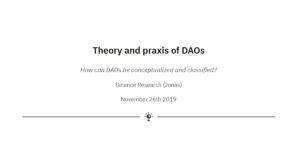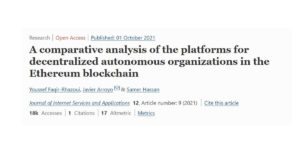Governance practices in distributed-ledger systems have grown increasingly diverse and diffuse, while retaining a commitment to cryptoeconomics—the use of economic incentives to guide user behavior, in tandem with cryptographic technology. In the space of a few years, cryptoeconomics has introduced advances in techniques for self-governance. But reliance on cryptoeconomics also introduces limitations on governance possibilities. Drawing on earlier critiques of how economic logics can erode democracy, this paper identifies specific limitations that cryptoeconomic governance faces. It contends that, to overcome these limitations, designers should envelop cryptoeconomics within forms of politics capable of seeing beyond economic metrics for human flourishing and the common good.





